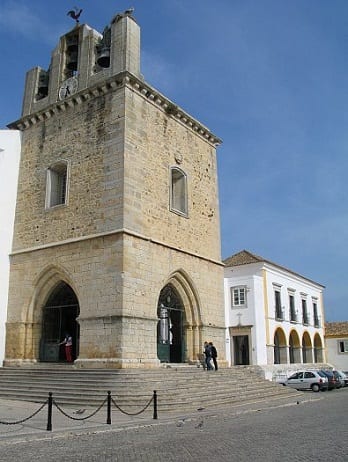Faro is a coastal city located in the region of Algarve. It is one of the most visited in the winter season where its beaches are the attraction to taste the best of its traditional food in the restaurants located on its shores.
It should be noted that the climate that dominates the city is the Mediterranean, with lots of sun and warm temperatures in the summer, which makes it one of the most visited destinations from May to September. December is the rainiest month until January where average high temperatures of 16 ° C are reached, and the average low of 8 ° C until reaching the spring weather of March and April.
And as an important tourist center, it has an outstanding monumental heritage: Iglesia del Carmen, the Gothic Cathedral, the Estói Palace, its walls, squares, the Convent of San Francisco, etc. It is also the seat of the University of the Algarve. It also has a commercial area in the city center around Francisco Gomes, Liberdade and Ferreira Almeida streets.
In addition to tourism, economic activities such as fishing, mainly tuna, the canning industry and the export of fruits and cork are developed in Faro. Another detail is that next to Faro is the Ría Formosa Lagoon, a 170 km² natural reserve ideal for bird watching.
To get to the Faro region, there is an important International Airport. And if you want to get there by land, you must use the Alfa Pendular, the train that goes twice a day to and from Lisbon.
On its origins it owes its foundation to the Romans being ossonoba one of the most important cities in the region during the Roman period until during the Visigothic period, Ossonoba was the seat of the bishopric, reaching great importance during the Muslim rule.
It is known that at the time of the Christian reconquest, in 1249, Faro had its main economic activities in fishing and the salt trade. Until in 1540 it was granted the category of city, a period in which a phase of profound urban renewal culminated.
Currently, Faro is the administrative capital of a tourist region that has its major development poles at Faro airport and the University of the Algarve.

